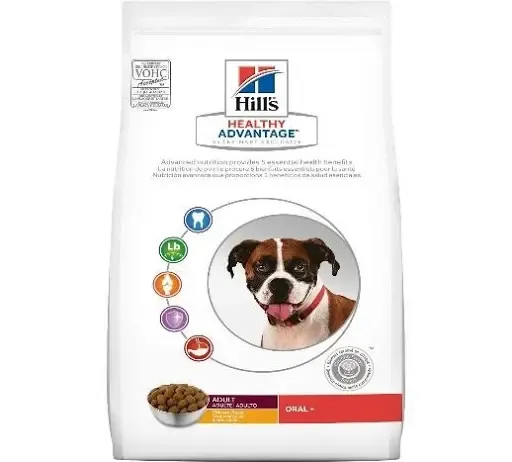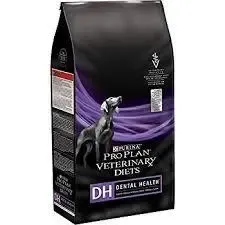As devoted pet parents, we cherish the moments spent feeding our canine companions, knowing it strengthens the unique bond we share. Imagine enhancing that experience by simultaneously promoting their dental health! While daily brushing remains the gold standard for at-home oral care, the simple act of chewing, whether on safe toys or specialized kibble, plays a significant role in reducing plaque accumulation. This is where carefully chosen dog food can become a powerful ally. For owners of small breeds, finding the right nutrition that also supports dental hygiene is paramount.
When oral bacteria, food debris, calcium, phosphorus, and saliva combine, plaque forms. If not removed through brushing, this plaque hardens into tartar, adhering firmly to the tooth. At this stage, professional ultrasonic scaling under anesthesia is necessary. Neglecting this can lead to gum inflammation and periodontal disease, a common issue in dogs, especially smaller ones with naturally more crowded teeth.
Fortunately, the market offers an array of products designed to support canine dental health, from specialized chews to dental treats. But what if your dog’s daily meals could actively contribute to cleaner teeth and fresher breath, eliminating the need to remember extra treats and added calories? The idea of every mealtime being a dental health boost is incredibly exciting, particularly for owners of small dogs who can benefit from diets formulated with their specific needs in mind.
Why Dental Health is Crucial for Small Dogs
Small breeds often face unique dental challenges. Their smaller jaws mean their teeth are more crowded, making them more susceptible to plaque and tartar buildup. This can lead to faster progression of gum disease and discomfort. Investing in best dental food for small dogs is not just about convenience; it’s a proactive measure to prevent painful dental issues down the line.
 Dog eating kibble
Dog eating kibble
Considerations for Small Breed Dental Food
When selecting dental dog food for small breeds, consider the following:
- Kibble Size and Texture: Look for kibble specifically designed for small mouths. The size should be manageable, and the texture should encourage chewing. Some dental foods feature a larger kibble size with a fibrous matrix that acts like a toothbrush as your dog chews. Others might have a specific coating that helps break down plaque.
- Nutritional Completeness: Ensure the dental diet is a complete and balanced meal, meeting all the nutritional requirements for small dogs. It should provide essential vitamins, minerals, and protein.
- Ingredient Quality: Opt for high-quality ingredients. Natural, wholesome foods can contribute to overall health, including oral health. Explore options for healthy natural food for dogs that might also offer dental benefits.
- Veterinary Recommendations: Many advanced dental diets are considered prescription diets and are best discussed with your veterinarian. They can recommend specific formulations based on your dog’s breed, age, and individual dental health status.
Top Dental Food Options for Small Dogs
Several brands offer specialized dental diets that can significantly benefit small breed dogs. While the original article mentioned general dental diets, here we focus on what makes them suitable for smaller companions.
Royal Canin Canine Dental Dry Food (Small Breed Formula)
Royal Canin is renowned for breed-specific and size-specific nutrition. Their Canine Dental Dry Food, available in a smaller kibble size tailored for smaller breeds, is an excellent choice. The kibble’s unique design and a proprietary ingredient work synergistically to combat plaque and tartar accumulation. The larger kibble size and a robust fiber-matrix are engineered to physically “brush” the teeth as the dog chews, effectively cleaning them with every bite.
Pro Plan Purina Veterinary Diets DH Dental Health Canine Formula (Small Bites)
Purina’s Dental Health Diet is another strong contender, offering a specially formulated crunchy kibble texture that is clinically proven to reduce tartar buildup. Crucially for small dogs, this diet comes in a “small bite” version, making it easier for them to chew and digest. Like many veterinary-recommended dental diets, this is a prescription option available through veterinary clinics.
Hill’s Science Diet Adult Small Paws or Prescription Dental Diet
While the original article mentioned Hill’s Healthy Advantage Oral+, Hill’s also offers diets like their Adult Small Paws line, which can support overall health for small breeds, and their prescription dental diets. These diets often feature kibble engineered to aid in mechanical plaque removal. The larger kibble size in some of their dental formulations can encourage more chewing, while the unique texture and coatings help minimize plaque buildup and reduce halitosis (bad breath). Consulting with your vet can help determine if a prescription dental diet from Hill’s is the right fit for your small dog, considering factors like their weight management needs or digestive sensitivities, potentially relating to a product like blue buffalo small breed healthy weight if you are exploring weight management options alongside dental care.
The Role of Diet in Overall Gut Health
Beyond direct dental benefits, nutrition plays a vital role in a dog’s overall health, including their gut microbiome. A healthy gut can positively influence immune function and nutrient absorption, indirectly supporting the body’s ability to manage inflammation, including in the gums. Incorporating prebiotics and probiotics can be a valuable addition to your dog’s diet to support gut health. For instance, understanding best pre probiotics for dogs and best probiotics for dogs gut health can help maintain a balanced digestive system, which is a cornerstone of a healthy dog.
 Dog chewing a dental treat
Dog chewing a dental treat
Transitioning Your Small Dog’s Diet Safely
Changing your dog’s diet, especially to a specialized dental formula, requires a gradual approach. Small dogs can sometimes have more sensitive digestive systems.
- Gradual Introduction: Start by mixing a small amount of the new dental food with their current food, gradually increasing the proportion of the new food over 5-7 days. This allows their digestive system to adapt.
- Observe for Reactions: Watch for any signs of digestive upset, such as vomiting, diarrhea, or changes in appetite. If any issues arise, slow down the transition or consult your veterinarian.
- Veterinary Consultation: Always discuss dietary changes with your veterinarian, especially if your dog has known allergies or health conditions. They can advise on the best transition strategy and monitor your dog’s response.
Beyond Food: A Comprehensive Dental Care Plan
While dental dog food is an excellent component of oral hygiene for small breeds, it’s not a complete solution on its own. A comprehensive plan should also include:
- Regular Veterinary Dental Check-ups: Professional cleanings and examinations by your vet are crucial for detecting and treating dental issues early.
- Daily Brushing: Aim for daily brushing with a dog-specific toothpaste. This is the most effective way to remove plaque before it hardens.
- Safe Dental Chews and Toys: Offer vet-approved dental chews and toys that are appropriately sized and safe for your small dog to prevent choking or tooth fractures.
By combining a high-quality dental diet formulated for small dogs with consistent home care and professional veterinary attention, you can significantly improve your small companion’s oral health and overall well-being, ensuring they keep their bright smile for years to come.
References
- American Veterinary Dental College. (n.d.). Pet Dental Health. https://avdc.org/pet-dental-health/
- American Veterinary Medical Association. (n.d.). Dental Health for Dogs. https://www.avma.org/resources-tools/pet-owners/petcare/dental-health-dogs
